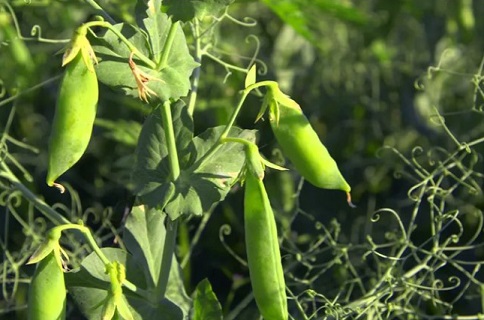Terpenes from plants belonging to the Fabaceae family show potential to treat COVID-19
Nikhil Prasad Fact checked by:Thailand Medical News Team Jul 11, 2024 9 months, 2 weeks, 1 day, 3 hours, 6 minutes ago
Herbs And Phytochemicals: In the ongoing fight against COVID-19, scientists are constantly seeking new treatments to curb the pandemic. Recently, a team of researchers from the Federal University of Paraíba in Brazil, the University of São Paulo in Brazil, and the University of North Carolina in the USA, has discovered promising compounds in plants from the Fabaceae family. Their study, which combines both computer simulations and laboratory tests, suggests that these compounds could be effective in inhibiting the SARS-CoV-2 virus. This
Herbs And Phytochemicals news report delves into their fascinating research, providing an accessible and detailed explanation for all readers.
 Terpenes from plants belonging to the Fabaceae family show potential to treat COVID-19
The Fabaceae Family and Its Potential
Terpenes from plants belonging to the Fabaceae family show potential to treat COVID-19
The Fabaceae Family and Its Potential
The Fabaceae family, also known as Leguminosae, is one of the largest families of flowering plants. It includes over 19,500 species such as beans, peas, and lentils. Beyond their nutritional value, many plants in this family are known for their medicinal properties. Terpenes, a type of compound found in these plants, are particularly noteworthy. Terpenes are responsible for the aromatic qualities of many plants and have been used in traditional medicine for their anti-inflammatory, antimicrobial, and antiviral properties.
Study Overview
The study aimed to explore the potential of terpenes from the Fabaceae family in combating SARS-CoV-2, the virus responsible for COVID-19. The researchers employed a combination of in silico (computer-based) methods and in vitro (laboratory-based) experiments. They constructed a Quantitative Structure–Activity Relationship (QSAR) model to predict which terpenes might have antiviral activity. This model was based on the known activity of compounds against SARS-CoV-2, providing a reliable method to screen a large number of terpenes quickly.
In Silico Screening
Using their QSAR model, the researchers screened 217 terpenes isolated from the Fabaceae family. The model predicted the potential activity of these compounds with an accuracy rate of 71%. This high accuracy rate indicated that the model was effective in identifying compounds that could inhibit the virus.
In Vitro Testing
Based on the model’s predictions, the researchers selected four compounds for further testing in the lab: betulinic acid, lupeol, betulinic acid acetate, and betulinic acid methyl ester. These compounds were subjected to in vitro phenotypic screening using Vero CCL-81 cells, which are commonly used in virology research. The aim was to assess their ability to inhibit the virus and their effects on cell viability.
Lab Results
The lab results were promising. Betulinic acid and its derivatives showed significant inhibition of the SARS-CoV-2 virus. Betulinic acid, in particular, exhibited the highest inhibition rate and maintained high cell viability. This
means that while it was effective in stopping the virus, it did not harm the cells. Lupeol also showed moderate antiviral activity and high cell viability, making it another compound of interest.
Molecular Docking Studies
To further understand how these compounds interact with the virus, the researchers conducted molecular docking studies. This technique allows scientists to visualize the interaction between a compound and a virus at the molecular level. Both betulinic acid and lupeol showed strong interactions with key viral proteins, including the main protease and papain-like protease, which are essential for the virus’s replication. These findings suggest that these compounds could effectively block the virus’s ability to replicate.
The Importance of This Research
This research is significant for several reasons. Firstly, it highlights the potential of natural compounds in developing new antiviral drugs. The Fabaceae family, with its rich diversity of terpenes, offers a promising source of new treatments. Secondly, the study’s combination of in silico and in vitro methods provides a robust approach to drug discovery. By using computer models to screen large numbers of compounds, researchers can quickly identify the most promising candidates for further testing.
Next Steps
While the results are promising, further research is needed to confirm the effectiveness of these compounds in humans. The next steps will involve more detailed studies to understand the mechanisms of these compounds and their potential side effects. Clinical trials will be necessary to determine their safety and efficacy in treating COVID-19. However, the findings so far are encouraging and represent a significant step forward in the search for new treatments.
Conclusion
In conclusion, the discovery of potential anti-SARS-CoV-2 compounds in plants from the Fabaceae family is an exciting development in the fight against COVID-19. Betulinic acid and lupeol, in particular, have shown significant promise in inhibiting the virus while maintaining cell viability. This research underscores the importance of exploring natural compounds in drug discovery and provides a hopeful outlook for the development of new antiviral treatments.
Acknowledgements
The study was a collaborative effort involving researchers from multiple institutions. The team included Natália Ferreira de Sousa, Gabrielly Diniz Duarte, Carolina Borsoi Moraes, Cecília Gomes Barbosa, Holli-Joi Martin, Nail N. Muratov, Yuri Mangueira do Nascimento, Luciana Scotti, Lúcio Holanda Gondim de Freitas-Júnior, José Maria Barbosa Filho, and Marcus Tullius Scotti. Their work was supported by the Coordination for the Improvement of Higher Education Personnel (CAPES) and the National Council for Scientific and Technological Development (CNPq) in Brazil.
Final Note
The study findings were published in the peer-reviewed journal: Pharmaceutics.
https://www.mdpi.com/1999-4923/16/7/912
For the latest on
Herbs And Phytochemicals, keep on logging to Thailand Medical News.
Read Also:
https://www.thailandmedical.news/news/traditional-remedies-in-gabon-how-medicinal-plants-helped-combat-covid-19
https://www.thailandmedical.news/news/norwegian-study-finds-that-salmon-oil-shows-promise-in-boosting-immune-health-after-covid-19
